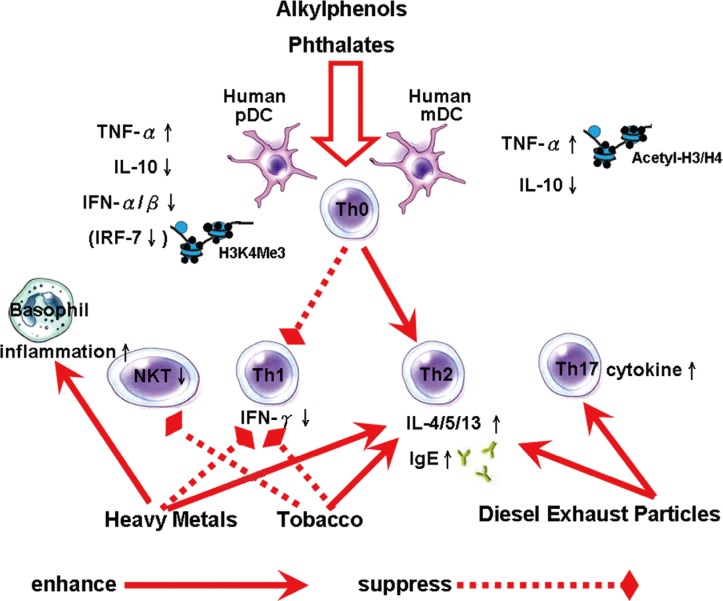Figure.
Possible mechanisms of the effects of environmental toxins on allergic inflammation. Alkyphenols and phthalates alter the function of human plasmacytoid dendritic cells (pDC) and myeloid DCs (mDC) by changing the expression cytokines, including tumor necrosis factor-α (TNF-α), interleukin (IL)-10, interferon (IFN)-α and IFN-β via the epigenetic regulation by histone acetylation as well as trimethylation. Alkyphenols and phthalates change the T cell stimulation function of DCs that promote Th2 development but suppress Th1 development. Heavy metals suppress Th1 development by inhibiting IFN-γ expression and promote Th2 development by enhancing IL-4 expression, and increase the production of IgE. Heavy metals also increase IgE-dependent basophil-mediated inflammation. Tobacco smoke suppresses the Th1 immune response by inhibiting IFN-γ expression and the survival of natural killer T cells, and promotes the Th2 immune response by increasing IL-4, IL-5, and IL-13 expression. Diesel exhaust particles increase IgE levels, and pulmonary and systemic Th2 and Th17 cytokine levels.

